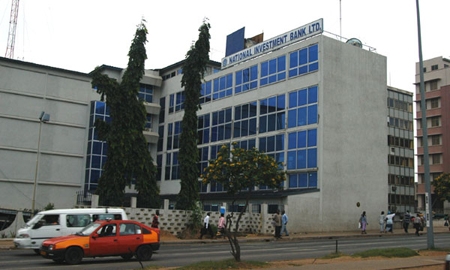
Agriculture accounts for roughly one-quarter of GDP and employs more than half of the workforce, and the nation’s banks are going to great lengths to make banking services easier and more accessible – especially as only around 34% of the adult population are bank users. Within a crowded banking sector which includes both international and local names, there are few standout banks that cater to the needs of the vast and growing number of SMEs.
“The agriculture sector is dominated by smallholder farmers. There are lots of risks involved in financing smallholder farmers. You have to develop them in groups,” says Dr Percival A Kuranchie, Managing Director of the National Investment Bank (NIB), who also praises the efforts made by the Agriculture Development Bank. “We specialise in financing large-scale projects and processing value addition. We are involved in cashew and a little bit of cocoa processing, oil palm and the oils. The name of the game is to add value to primary products. This will create employment and foreign exchange receipts. So you save and earn foreign exchange. The balance of trade improves considerably, and so does the balance of payment.”
Established in 1963, NIB was the first development bank in Ghana to promote and strengthen rapid industrialisation in all sectors of the Ghanaian economy. Today, it operates as a universal bank focusing on development and commercial banking activities. “Anybody who has the capital and wants to invest in Africa should know that the highest return on investment is in emerging economies. Africa is the next frontier,” says Dr Kuranchie.
Ghana is ranked as one of the top 20 countries in the world for microfinance business opportunities. In a study carried out by the Economist Intelligence Unit, called the Global Microscope on the Microfinance Business Environment 2011, Ghana is placed 19th out of 55 countries assessed on their overall conduciveness to credit for people on low incomes.
uniBank is one of the nation’s indigenous institutions tailoring new services to meet the needs of the unbanked and microcredit sectors. Also, as part of its 10th anniversary celebrations last year, the bank organised an SME seminar under the theme “Sustaining SME growth in Ghana – 10 years of support from uniBank” and reaffirmed its focus on nurturing visionary Ghanaian entrepreneurs into successful business giants.
Likewise, Ghana Commercial Bank (GCB) is creating technology-based products and channels to serve the unbanked population, such as a new point-of-sale (POS) network and card-based products. Managing Director Simon Dornoo says, “GCB is present in all regional capitals and towns so we are very visible in all communities. We have launched our credit-scored personal loan product, which is doing very well. These are very small loans, averaging $2,000, which our customers can now access within 24 hours. It is really amazing how one can touch people’s lives with small loans.”
0 COMMENTS